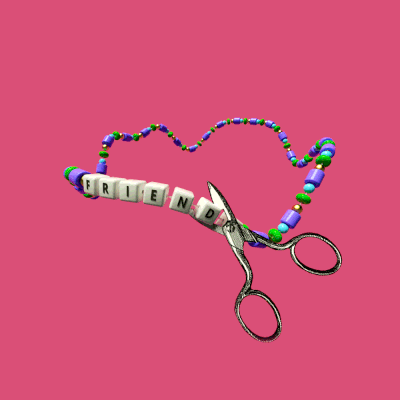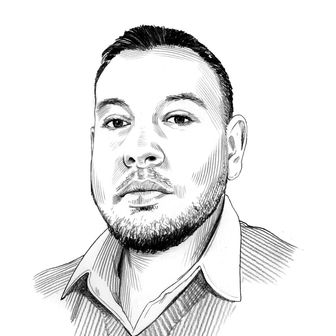
This column first ran in John Paul Brammer’s Hola Papi newsletter, which you can subscribe to on Substack.
¡Hola, Papi!
I’ve always prided myself on being a good friend. I love and value my friends so much, and I want them to know it. Recently, I moved from the city where I had lived for nearly a decade, a place where I had a very tight-knit group. We’ve been there for each other through so much, and people would often comment on how involved in each other’s lives we were.
However, now that I’ve had some distance, I’ve realized that I was putting a lot of effort into maintaining this community without saving much energy for myself. In the midst of my flourishing friendships, I didn’t make space for things that would only offer me an individual benefit: dating, networking, regularly getting enough sleep, etc. And, looking around, no one else seemed to have this problem.
As I’ve been building a new community in my new city, I’m trying to be more careful about setting boundaries so I don’t fall into codependency. But in my eagerness to connect with people, it feels unnatural to temper my excitement about someone who I feel a kinship to. I try to remind myself about the lack of reciprocation with my old friends, but don’t want to become jaded and start treating each friendship like a carefully balanced transaction. Can I train myself to expect less from friends? How do I toe the line between social and selfish?
Sincerely,
Fatigued Friend
Hey there, FF!
It’s interesting to me that at first you describe being in a tight-knit group of friends who were deeply involved in each other’s lives, but then you say the dynamic wasn’t reciprocal. It makes me wonder if everyone felt this way and the vibe came about organically, or if this level of investment was something you manifested.
The difference matters, because it could very well be the case that your comfort zone is in a sort of “martyr” role when it comes to building intentional community in your life. That might sound a bit dramatic, but I don’t mean it to be. Let me explain.
When it comes to friend groups, there is often an individual who sees it as their duty to make everything happen, to organize the hangouts and keep the peace and be the mother hen, as it were. This isn’t a bad thing! I have found myself in this position before. I’ve had to herd my cats to a picnic at the park or to a movie night, knowing full well they would have never planned such a thing on their own. But hanging out with everyone made it more than worth it for me.
Where it becomes an issue, I think, is when a person is always in this role, either because the group expects it of them, or because they keep putting themselves in it, even if no one is demanding it of them. If you find yourself in the latter situation, it might be worth reflecting on why that position feels like one you need to fulfill, and if perhaps your noble sacrifices for the sake of your friends are really all that noble.
This isn’t to say you (or anyone who relates) is trying to be manipulative. But the way we approach our relationships often reflects our anxieties, and being the exhausted “workhorse” of the group, so to speak, does come with its mental benefits. It can make us feel productive, useful, and indispensable. If we are people who fear loss, or who fear being disposed of, such behavior can feel like a failsafe against that. They can’t discard me, because I’m an integral part of our group.
Speaking for myself, I am a person who wrestles with a fear of abandonment. I was bullied a lot in my youth, and even after the bullying stopped, I always felt like friendship was some kind of huge favor someone was doing for me. I always felt like I should do everything in my power to keep my friends happy, to make sure they didn’t leave me. I knew what it was like to be vulnerable and lonely, and I never wanted to feel that way again, so I eschewed conflict and I would panic if my friends were ever anything less than over the moon to know me.
To me, what this all points to is a lack of sense of self. For many people, friendship is valuable evidence. People like me. I matter. I am valuable to other people. I’m a good friend. To be clear, there’s nothing wrong with drawing these conclusions from our relationships. It’s good when people make us feel this way. But we can’t lose ourselves in our pursuit of those feelings. For healthy relationships to thrive, we have to be willing to set boundaries, to engage in conflict, and, when necessary, to prioritize ourselves.
If we don’t, we leave ample room for resentment, burnout, and dissatisfaction to creep in through the cracks and to fester. What you have to do is determine what your needs are, figure out how you want to be treated, and set an example for that treatment. That means actually enforcing the boundaries you’ve set by vocalizing them and being willing to assert yourself in situations where it’s called for.
As you go forth and make new friends, it’s okay to be excited! Excitement is very warranted on the “making new friends” front. Have you heard of hanging out? Of camaraderie? Of being besties? It’s great! But that excitement doesn’t have to translate into investing too much too soon. Take in the pleasure of getting to know someone and let the relationship form at its own pace. Make plenty of time for yourself, meanwhile.
I hope you don’t feel like I’ve diagnosed you with anything here, FF. I think the issues I presented here are widely applicable to all sorts of relationships and personalities. Remember, the group dynamic will never be perfect, as every group is made up of imperfect people. But it’s not your job to be perfect. It’s your job to enjoy each other.
Con mucho amor,
Papi
Originally published September 25, 2023.
Purchase JP Brammer’s book Hola Papi: How to Come Out in a Walmart Parking Lot and Other Life Lessons, here.


